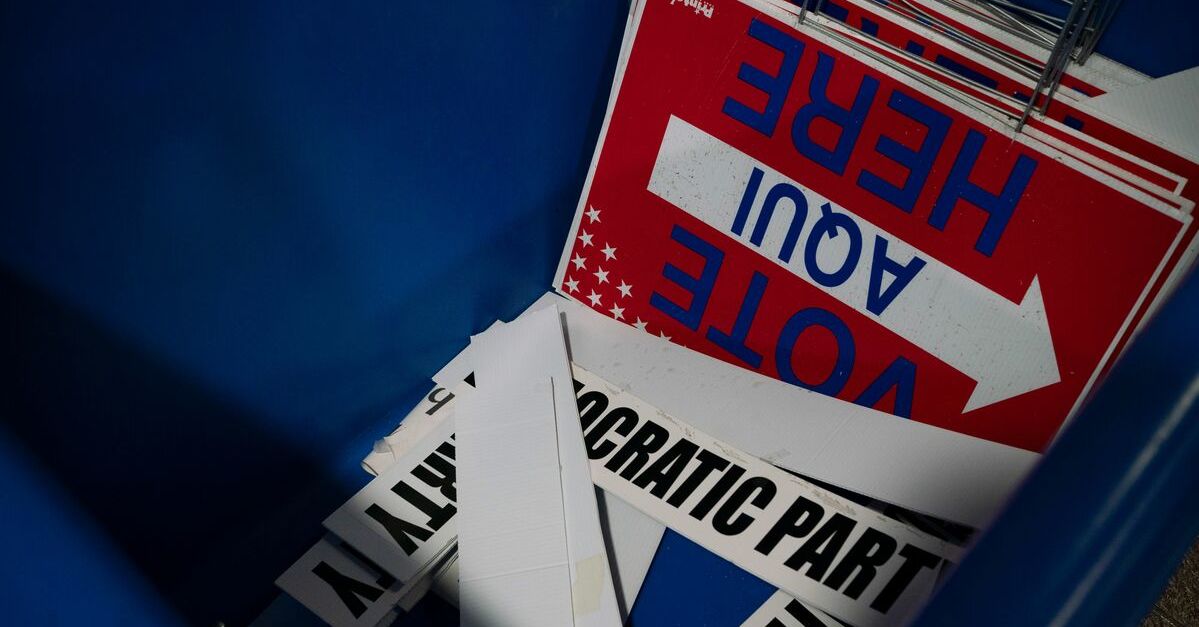
A federal court on Thursday reversed a decision that expanded vote-by-mail in Texas due to the novel coronavirus (COVID-19) pandemic.
In a three-judge panel decision, the Fifth Circuit Court of Appeals blocked a lower court’s ruling that mandated Texas election officials provide absentee ballots to any voter who requests one out of fear of contracting the deadly contagion at physical polling locations.
The decision also takes a swipe at the San Antonio-based judge who issued the prior ruling in favor of increased voting access.
“In an order that will be remembered more for audacity than legal reasoning, the district judge intervenes just weeks before an election, entering a sweeping preliminary injunction that requires state officials, inter alia, to distribute mail-in ballots to any eligible voter who wants one,” the decision caustically notes. “But because the spread of the Virus has not given ‘unelected federal jud[ges]’ a roving commission to rewrite state election codes, we stay the preliminary injunction pending appeal.”
In late May, U.S. District Judge Fred Biery issued a sweeping, poetic and stinging rebuke of the Lone Star State’s official position viz. increased access to vote-by-mail during the ongoing pandemic:
Of the 3,929,214 original Americans, “We the People” as the new sovereign with the power to prevent a new despot belonged in the hands of only 235,753 white males who owned property.Over time the franchise grew to include all white males, African-American men, and women. Without that evolving expansion, “We the People” are mere words on 200 year old parchment.
“There are some among us who would, if they could, nullify those aspirational ideas to return to the not so halcyon and not so thrilling days of yesteryear of the Divine Right of Kings, trading our birthright as a sovereign people for a modern mess of governing pottage in the hands of a few and forfeiting the vision of America as a shining city upon a hill,” the judge continued.
Biery agreed with several individual voters and the Texas Democratic Party that voters would face irreparable harm if the state limited vote-by-mail access to those over the age of 65 and those with a narrowly-defined “disability” as interpreted by authorities.
Texas Attorney General Ken Paxton has argued in two separate lawsuits–one state and one federal with substantially similar legal issues at stake–that the relevant provision of state law related to the request for an absentee ballot requires a voter to actually suffer from a sickness or disability that renders them unable to make it out to the polls to vote. Voters and voting rights advocates have argued that fear of contracting the often-deadly illness is disability enough.
In the present federal lawsuit, Texas Democrats also argued that limiting absentee ballot requests to voters 65 and older was a violation of the Constitution. Judge Biery agreed.
“The Texas Election Code allows citizens over sixty-five without a disability to vote by mail,” the decision granting the preliminary injunction noted. “Thus, the Texas vote by mail statute provides for the health [and] safety of mail ballots for those 65 years of age and older but not those 64 years, 364 days and younger. The Court finds no rational basis for such distinction and concludes the statute also violates the clear text of the Twenty-Sixth Amendment.”
The Fifth Circuit quickly dismissed several claims by the State of Texas as to the plaintiffs’ alleged lack of standing, the defendants’ alleged immunity to lawsuits and their claim that voting rights issues are unjusticiable political questions but weighed in on Paxton and Texas Gov. Greg Abbott’s side over the constitutional issue of whether or not the state was discriminating against people under the age of 65.
In finding for the state, the appeals court judges lambaste Biery and the plaintiffs’ theories with a series of invective and suggest that Texas authorities have done enough to make voting safe for people who cannot request an absentee ballot.
“Texas has long allowed certain groups, including persons aged sixty-five and over, to vote early by mail,” the decision notes. “Not everyone has that privilege, however, so with the Virus spreading, Texas plans to implement measures to protect those who go to the polls. Those measures include the bread and butter of social distancing, such as protective masks for election workers, plentiful cleaning wipes and hand sanitizer, cotton swabs for contacting touch screens, and floor decals inside the polling places that show where voters should stand.”
The ruling also rubbishes the idea that voting by mail implicates the actual right to vote at all [emphasis in original]:
The state officials will likely succeed in showing that McDonald controls. Texas has similarly decided to give only some of its citizens the option to vote by mail. That statutory scheme, which is “designed to make voting more available to some groups who cannot easily get to the polls,” does not itself “deny” the plaintiffs “the exercise of the franchise.” The plain- tiffs are welcome and permitted to vote, and there is no indication that they “are in fact absolutely prohibited from voting by the State.” So the right to vote is not “at stake.”
The upshot of this ruling is that Biery’s original injunction cannot take effect. Biery is currently weighing several motions that have been filed in the case since the issuance of his preliminary injunction. A hearing on the merits has not yet been held.
The Texas primary run-off election is scheduled for July 14, 2020.
[image via PAUL RATJE/AFP via Getty Images]